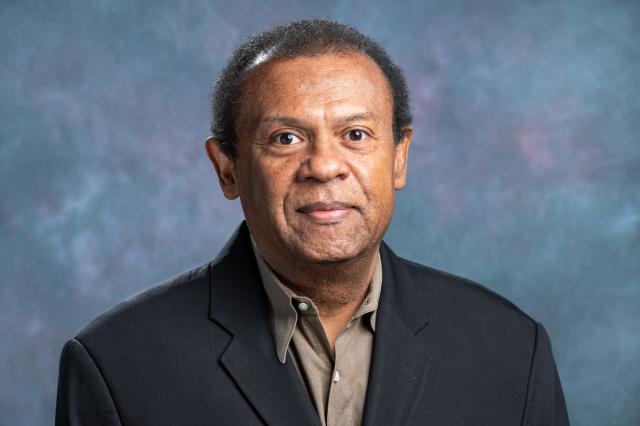Watson Institute’s Nicky Sheats, J.D., Ph.D., Testifies Before Congress in Support of Environmental Justice Bill

Nicky Sheats, J.D., Ph.D., director of the Center for the Urban Environment at the John S. Watson Institute for Urban Policy and Research at Kean University, testified before the Congressional Natural Resources Committee today on legislation designed to protect urban and underserved neighborhoods from pollution.
A member of the White House Environmental Justice Advisory Council, Sheats was one of three experts who testified about the Environmental Justice for All Act, which they helped develop. It would require the government to consider the cumulative impact of a proposed project on local communities before approving pollution permits.
“It is such a critical issue to address cumulative impacts because, unfortunately, numerous reports have found that there are more polluting facilities in indigenous communities, communities of color, and low-income communities than there are in other communities,” Sheats testified.
These communities are then vulnerable to higher rates of disease, less access to health care, and many forms of racial discrimination, he added.
“When you put this together, you get a combustible mix that results in increased death and illness — which is almost certainly one reason why there are persistent and recalcitrant health disparities that exist in our country that are rooted in race and income,” Sheats said.
Kean President Lamont O. Repollet, Ed.D., said he was proud to have Sheats represent the University and the Watson Institute before Congress.
“Dr. Sheats is a national leader on the issue of environmental justice,” Repollet said. “As the state’s first urban research university, Kean takes great pride in our research and policy work to address critical issues such as environmental justice and health disparities in our urban municipalities.”
Joseph Youngblood II, Ph.D., Kean senior vice president for external affairs, said Sheats’ Congressional testimony was insightful and instructive.
“He is a leading voice in shaping environmental policy and practice in the interests of communities of color in New Jersey and around the world, and has worked tirelessly to keep environmental justice front and center on the national and world stage,” Youngblood said.
Introduced in 2020 with more than 70 cosponsors, the Environmental Justice for All Act is hailed as the most comprehensive environmental justice bill in congressional history.
Sheats said that the sweeping legislation is needed because individual legal standards don’t take into account harms that have already been sustained by neighborhoods or regions when considering new projects. He called it “perhaps the pre-eminent environmental justice issue in our country today.”
Through the Watson Institute, Sheats works at the state and national levels to provide support for the environmental justice community in addressing particulate matter air pollution, climate change and cumulative impacts, and to develop legal strategies. He has won numerous awards for his environmental justice work, which has included serving as a founding member of organizations including the New Jersey Environmental Justice Alliance and the Environmental Justice Leadership Forum.
“Dr. Sheats is masterful in his expertise and his ability to shape the national conversation around environmental justice, and he proved that with his testimony today,” said Barbara George Johnson, J.D., vice president of external affairs and urban policy and research at Kean. “I thank him for his dedication and efforts to ensure that communities of color are protected from future burdens of excessive pollution and polluters.”
Also testifying before the Natural Resources Committee today were Laura Cortez, co-executive director of East Yard Communities for Environmental Justice in Los Angeles; Amy Laura Cahn, acting director of the Environmental Justice Clinic at Vermont Law School; and Mayor Harry K. Brower, Jr., of North Slope Borough in Alaska.